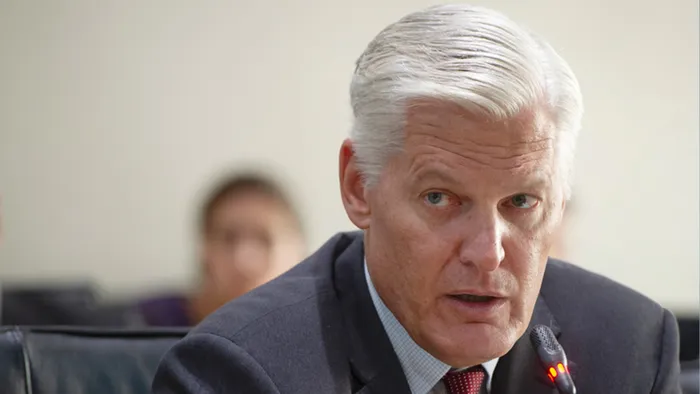Former Eskom CEO Andre de Ruyter credits diesel use and power station returns for ending load-shedding

Former Eskom CEO Andre de Ruyter says South Africa has avoided load-shedding for an extended period of time, thanks in part to burning large amounts of diesel.
Image: Armand Hough/Independent Newspapers
Former Eskom CEO Andre de Ruyter says South Africa has avoided load-shedding for an extended period of time, thanks in part to burning large amounts of diesel.
In an interview with BizNews, de Ruyter, who presided over a period marked by significant challenges for Eskom, including financial difficulties and worsening load-shedding, said that the end of loadshedding was not a surprise.
He added that the return of key power stations, increased private sector solar power, and the heavy use of diesel all contributed to stabilising the electricity supply.
"The end of load shedding is not a surprise, and the math is very simple. There was a project to replace the steam generators at Koeberg one and two. That's two times 920 megawatts," de Ruyter said.
"That project is essentially complete and is delivering to the grid.. Kusile one, two, and three, we had issues, Eskom had issues where the flue gas desulfurization unit collapsed. Those units were put out of commission. Three times 800 megawatts came back and are now contributing to the grid. Kusile five and six reached beneficial operation"
He said during his time at the state-owned utility, the budget for diesel was around R5 billion per year, but now has risen to around R23 billion.
"When I was at Eskom, we were allowed to burn about R5 billion of diesel a year, which is a lot. And I felt bad for it, because it's very, very expensive electricity that we generate. The latest budget is sitting in the region of about 23-24 billion".
"And that's not affordable. It costs about R6 per kilowatt hour to generate electricity from diesel. But that makes the difference. So if you've got unlimited money to throw at diesel in, problems magically go away".
Minister of Electricity and Energy Kgosientsho Ramokgopa has previously said that appointing André de Ruyter as Eskom’s CEO was a strategic mistake.
“I think we misdirected ourselves previously when you’ve got someone at the helm who doesn’t have an appreciation of how to run a utility of this nature,” Ramokgopa told NewzRoom Afrika.
IOL Business
Get your news on the go. Download the latest IOL App for Android and IOS now
Related Topics: